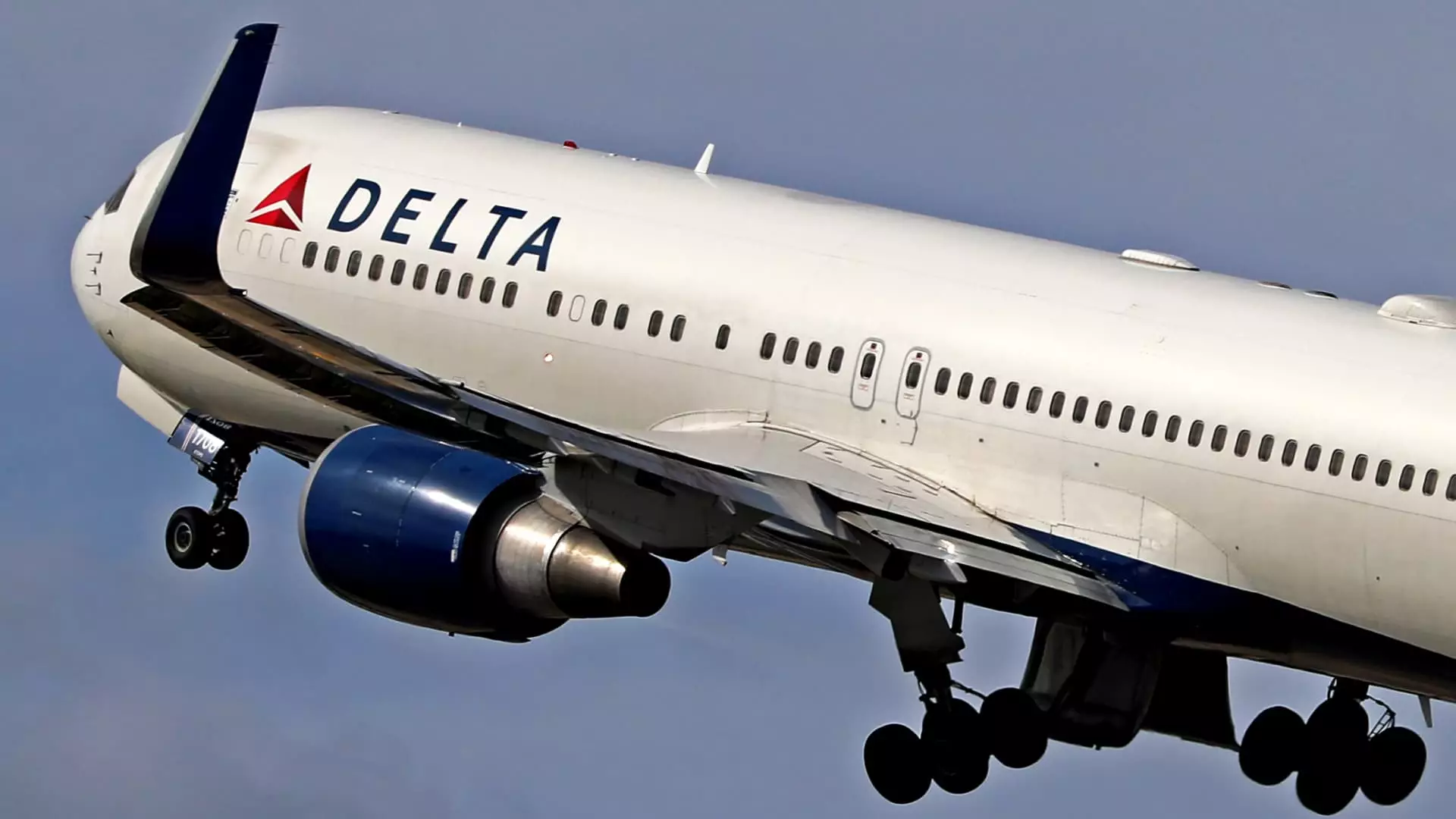Recently, airline stocks have taken a downward plunge, igniting fears among investors and industry observers alike. The drop reflects growing apprehension about consumer demand, exacerbated by economic pressures such as rising tariffs and declining consumer confidence. Unlike past years when airline stocks thrived on a swell of travel enthusiasm, current conditions indicate a stark change in the industry’s fortunes.
Delta Air Lines Faces Rough Weather
Delta Air Lines, a cornerstone of the U.S. aviation sector, finds itself in particularly stormy waters. Following a downgrade from Jefferies, which halved its price target for the airline, Delta’s stock fell over 3%. This represents not only a financial setback for the company but also serves as a bellwether for the rest of the airlines. The bank warned that Delta could further adjust its 2025 forecasts downward, which is troubling news for an airline that once enjoyed a commanding lead in profitability.
Interestingly, Delta’s executives assert that they are capturing more revenue from high-end cabins and lucrative partnerships, such as their agreement with American Express. Nevertheless, this strategic shift may not be enough to weather the brewing storm of a recession-driven market, where typical travelers are turning more price-sensitive, delaying or forgoing trips altogether.
Broader Industry Challenges
The turbulence doesn’t end with Delta. Jefferies has similarly downgraded American Airlines and Southwest Airlines, indicating widespread concern about domestic travel—an area pivotal for revenue generation. Even United Airlines, which remains the solitary “buy” recommendation in Jefferies’ reports, has seen its price target slashed by 48%. Such drastic revisions signal that the airline sector, once the pride of the U.S. economy, may be teetering on the brink.
A recent Bank of America report illustrates the plight succinctly: while overall household spending has increased, airline spending has declined by an unsettling 7.2%. This anomaly is not just a statistical blip; it reflects a broader trend where consumer confidence is faltering. Instead of booking trips, families are pulling back and reassessing their travel plans, contributing to a cautious market atmosphere.
Economic Indicators and Unpredictable Variables
The NYSE Arca Airline Index’s considerable 18% dip in the first quarter highlights the overarching issues facing the industry. It has substantially outpaced the S&P 500’s decline, emphasizing that airline stocks are faring markedly worse than the overall market. What’s troubling is that these declines follow significant growth during the recovery phase post-pandemic—problems were hidden beneath the surface but are now coming to light.
What’s more, factors like erratic weather patterns and a moving holiday calendar can further complicate the situation, as underscored by the Bank of America Institute. While these variables are outside the airlines’ control, their impact on bookings cannot be ignored. They contribute to a scenario where both the airlines and their customers are left in a holding pattern of uncertainty.
The landscape of the airline industry has begun to mirror broader economic anxieties. While companies like Delta may find niches for profit, the general trend signals perhaps the onset of a more profound challenge, one that could shake the very foundations of travel and tourism in the United States.

